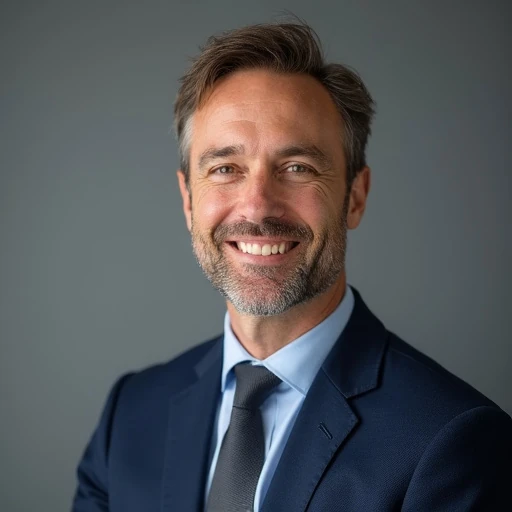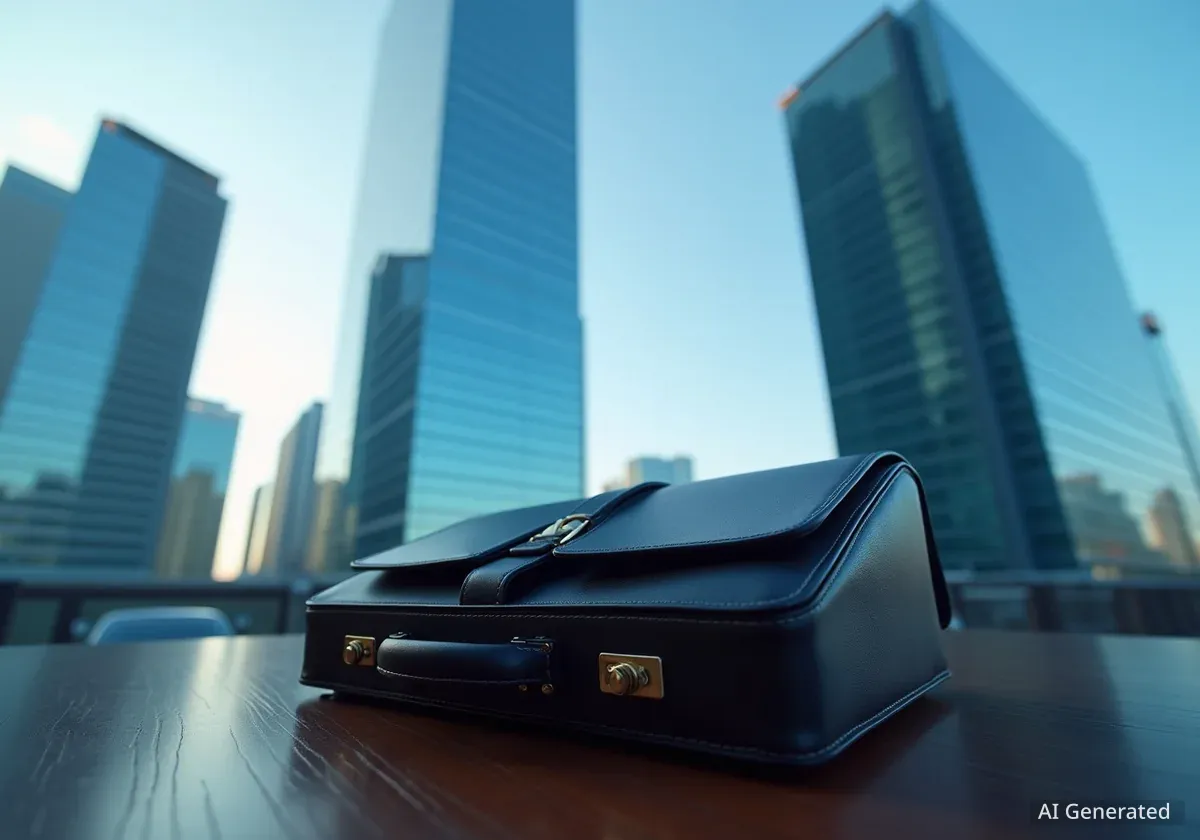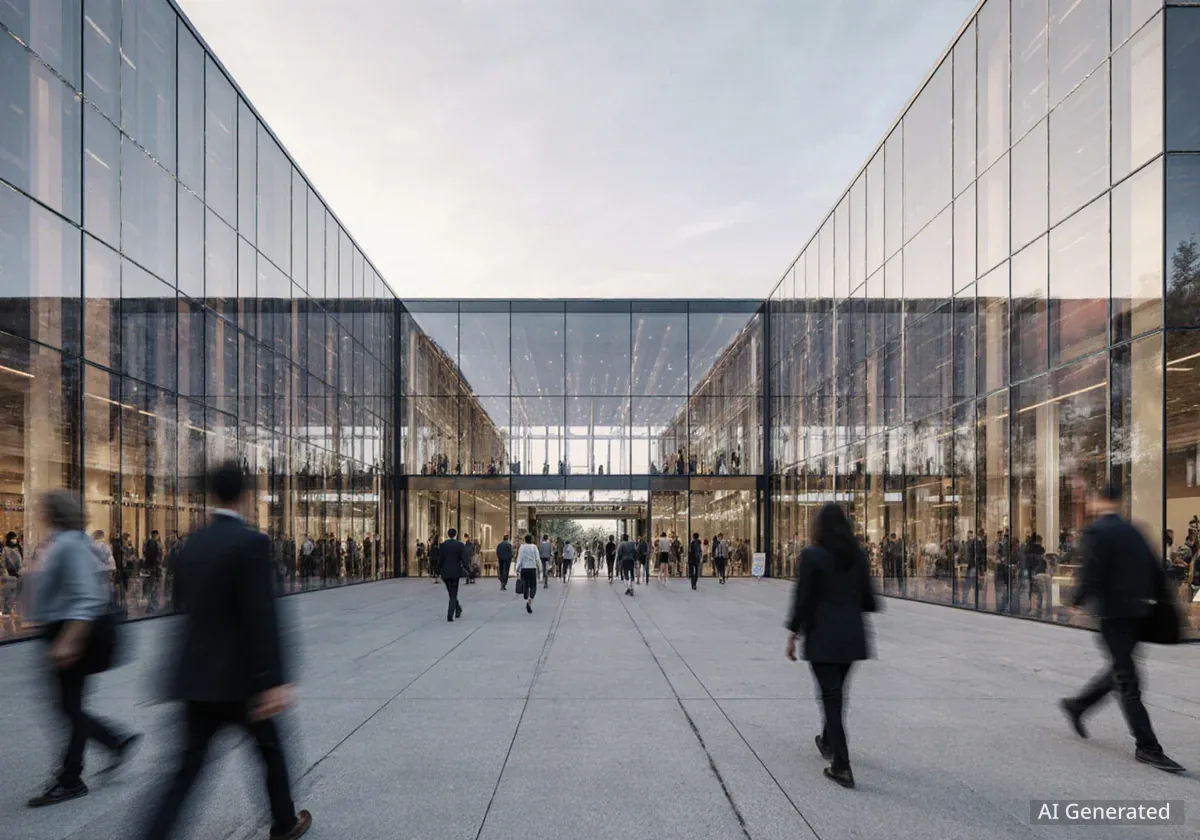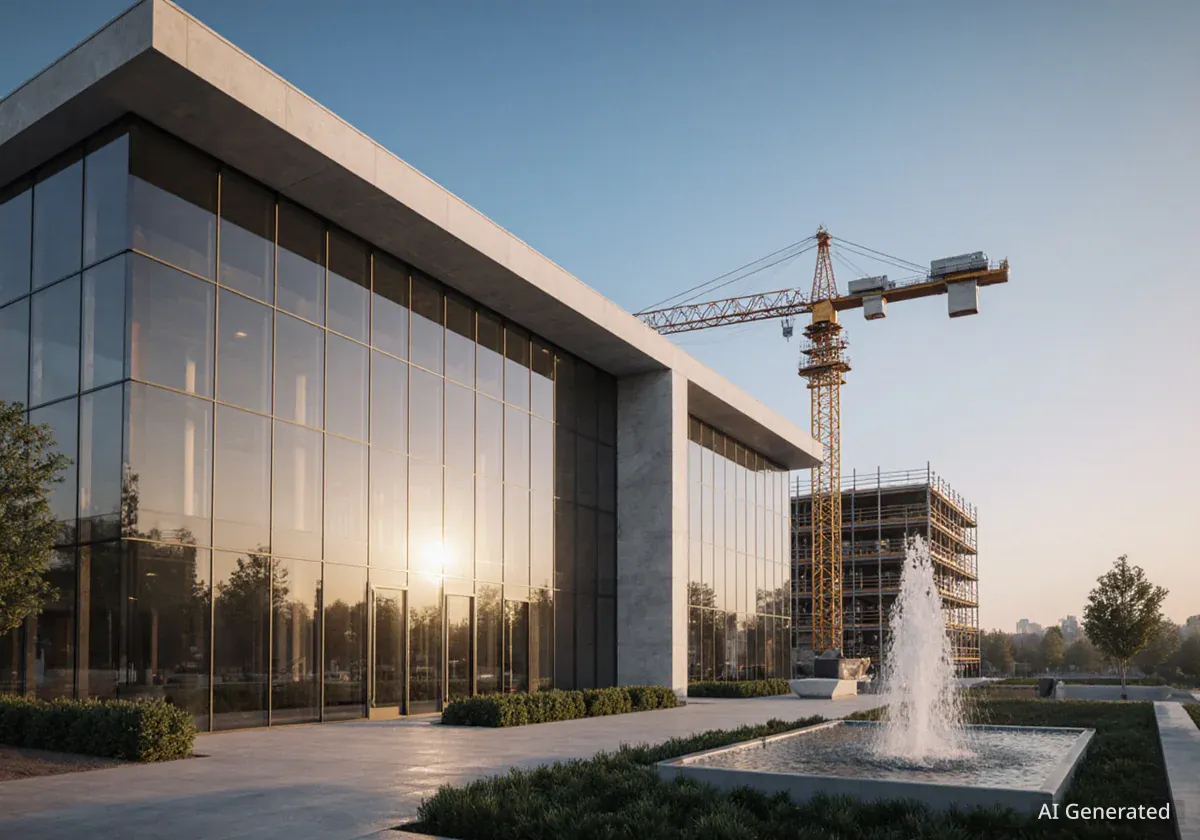Global investment firm Blackstone has completed its acquisition of David Lloyd Leisure, one of Europe's largest health and fitness groups, in a transaction valued at approximately £2 billion. The deal signals a significant investment in the premium health and wellness sector, which has seen renewed growth following the pandemic.
The acquisition transfers ownership from TDR Capital to Blackstone's private equity and real estate funds. It encompasses David Lloyd's entire portfolio of 132 clubs across the United Kingdom and mainland Europe, serving more than 750,000 members.
Key Takeaways
- Blackstone has officially acquired David Lloyd Leisure for a sum of £2 billion.
- The deal includes 132 health clubs located in the UK and nine other European countries.
- The acquisition was made through a combination of Blackstone's private equity and real estate funds, highlighting the value of the company's property assets.
- The move reflects strong investor confidence in the premium health and wellness market's long-term growth potential.
Details of the Landmark Transaction
The £2 billion deal marks one of the most significant transactions in the European leisure industry in recent years. Blackstone's investment was structured to leverage both its private equity expertise and its extensive real estate portfolio management capabilities. This dual-fund approach underscores the intrinsic value of David Lloyd's physical locations, many of which are situated in prime suburban areas.
TDR Capital, the selling party, had owned David Lloyd Leisure since 2013. During its decade of ownership, the company expanded its footprint significantly, adding new clubs and investing heavily in facility upgrades. The sale generates a substantial return for TDR Capital's investors and passes the baton to Blackstone to steer the company's next phase of growth.
Background on the Deal
Negotiations for the acquisition were reportedly ongoing for several months. The final agreement reflects Blackstone's strategic focus on acquiring market-leading companies with strong brand recognition and resilient business models. The health and wellness sector has proven to be particularly attractive to institutional investors due to its consistent demand and membership-based revenue streams.
According to sources familiar with the transaction, the financing was arranged through a consortium of leading investment banks. The deal's structure is designed to provide David Lloyd with the necessary capital to pursue further expansion and innovation in its services.
David Lloyd's Premium Market Position
Founded in 1982 by former professional tennis player David Lloyd, the company has established itself as a leader in the premium family-oriented health club market. Unlike budget gym chains, David Lloyd clubs offer a comprehensive range of facilities that often include swimming pools, tennis courts, spas, and family-friendly activity areas.
This full-service model attracts a loyal membership base willing to pay higher fees for quality and convenience. The company's focus on the family segment has been a key differentiator, creating a community atmosphere that encourages long-term membership.
David Lloyd Leisure by the Numbers
- Total Clubs: 132
- UK Clubs: 101
- European Clubs: 31 (across Spain, Italy, Germany, and others)
- Total Members: Over 750,000
- Employees: Approximately 8,000
The company's real estate portfolio is a significant component of its valuation. Many of its clubs are large, purpose-built facilities occupying substantial plots of land. This makes the company an attractive asset not just as an operator but also as a real estate holding entity.
Blackstone's Strategic Rationale and Future Plans
Blackstone's acquisition is driven by a belief in the enduring strength of the health and wellness trend. The pandemic heightened public awareness of physical and mental well-being, translating into increased demand for high-quality fitness facilities.
"David Lloyd Leisure has a strong, established brand and a resilient business model centered on family health and wellness. We see significant opportunity to support the company's continued growth through strategic investment in its clubs and digital offerings," a representative for Blackstone stated.
Industry analysts believe Blackstone will focus on several key areas to drive value. These include:
- European Expansion: Accelerating the opening of new clubs in underserved markets across mainland Europe.
- Digital Integration: Enhancing the member experience through improved digital platforms, including class booking apps and at-home fitness content.
- Facility Modernization: Continuing the program of upgrading existing clubs with state-of-the-art equipment and amenities.
- Operational Efficiencies: Leveraging Blackstone's scale and operational expertise to optimize business processes.
The investment firm has a long track record of successfully growing consumer-facing businesses. Its portfolio includes major brands in the hospitality and leisure sectors, such as Merlin Entertainments, the operator of Legoland and Alton Towers. This experience will be instrumental in guiding David Lloyd's future strategy.
Implications for the European Fitness Industry
The acquisition of David Lloyd by a firm of Blackstone's stature sends a powerful signal about the health of the European fitness market. It suggests that major investors see long-term value in brick-and-mortar fitness centers, despite the rise of digital and at-home workout solutions.
The deal is likely to increase competition in the premium segment. Competitors such as Virgin Active and Nuffield Health will face a newly capitalized David Lloyd, potentially leading to an acceleration of investment and innovation across the industry. It could also trigger further consolidation, as smaller operators may find it difficult to compete with the scale and resources of larger, private equity-backed groups.
Furthermore, the focus on David Lloyd's real estate assets may prompt other fitness operators to re-evaluate their own property strategies. The value locked in physical locations is becoming an increasingly important factor for investors in the sector.
For consumers, the acquisition is expected to be positive. Blackstone's investment will likely result in better facilities, enhanced services, and an expanded network of clubs. The leadership team at David Lloyd is expected to remain in place, ensuring continuity in the company's member-focused approach while benefiting from the strategic and financial backing of its new owner.





